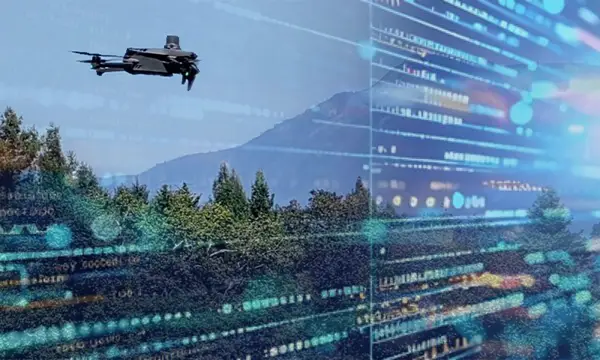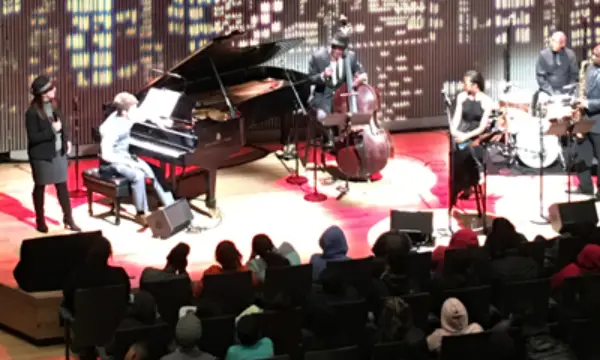- About
- Network
- Community
- Initiatives
- News
- Events
- Blog
- Publications

Getting the Grant: Federal Agencies Share Success Stories for Connected Community Proposals
Categories Cultural & Scientific Libraries RENS & NRENS
Tags conference imls nsf

Smart communities are popping up around the globe and as their numbers grow, connected technologies will touch nearly all aspects of the human experience. Smart, inclusive, connected communities harness data and technology to increase efficiencies, improve sustainability, spur the economy, and enhance the quality of life for locals.
Two federal agencies, the National Science Foundation and the Institute of Museum and Library Services, recognize that robust broadband is essential to discovering and disseminating knowledge. Both organizations offer grant funding to advance broadband services and create connected communities. At CENIC’s 2019 Conference in March, representatives gave examples of past projects that received funding and discussed upcoming opportunities.
NSF Offers Smart and Connected Communities Grants
The NSF’s Smart and Connected Communities (S&CC) program links universities to community organizations. Together, researchers and local stakeholders identify real-world challenges and design research projects that address them. Local partners have included schools, libraries, hospitals, public safety organizations, and other community anchor institutions.
Henry Kautz, a division director at NSF, spoke about the interdisciplinary program, which is a joint effort of NSF’s Directorates for Computer and Information Science and Engineering; Education and Human Resources; Engineering; and Social, Behavioral, and Economic Sciences. Last year, the program awarded $23 million to grant recipients. “The biggest single area was water management, but we also supported work in health, energy, transportation, urban planning, hazards and disasters, and education,” Kautz said. Projects often blend technical and social science to address the interplay between technology and people.

In health, researchers in the schools of nursing and computer science at the University of California Irvine are partnering with Orange County hospitals and local outreach programs to provide smart health care to mothers and families, particularly in underserved communities. The UCI project combines data insights by employing Internet of Things (IoT)-enabled technology and lifelogging with personalized medical and behavioral recommendations. The goal is to promote population health by shifting the care model from an individualized approach to a community-enhanced approach.
A project aimed at hazards and disasters improves landslide prediction and evacuation. A team led by the RAND Corporation and including researchers at the University of Southern California is designing a landslide warning system for Sitka, Alaska, using wireless sensors and image analysis with machine learning. On the social science side, the project looked at how key community influencers can create more effective dissemination channels for landslide warnings and spur residents to react faster when an emergency strikes.
To apply for S&CC grants, the deadline for letters of intent is August 6, 2019.
IMLS Offers Digital Platform Grants
Broadband connectivity is a vital element of smart communities. IMLS is working toward a National Digital Infrastructure, and seeks grant proposals that will have a significant national impact on the amount of online content and services libraries and museums can offer.
James Neal, senior program officer for IMLS, manages grants related to building equitable digital communities, including open educational resources, digital inclusion, data privacy and security, and broadband access.
“We've been funding programs that are based on digital access, knowledge of how to use certain devices, tools, and services, and working for greater coordination and participation in the E-Rate program, which will allow schools and libraries to obtain affordable broadband support,” Neal said.
Internet2’s Toward Gigabit Libraries project, which offers a "Broadband Toolkit" and “Broadband Action Plan,” helps librarians in California and across the United States learn about their broadband infrastructure and internal information technology (IT) environment. The idea was to create a self-guided resource that anyone can use — even with limited technical knowledge — to understand their library’s data network and discover ways to improve connectivity. “Having shared understanding between lay people and technology staff is important,” said Library Technology Consultant Carson Block. “That's where it starts and collaboration really works.”
Measuring Library Broadband Networks gives libraries across the country the ability to regularly assess the speed and quality of their Internet. The project examines how advanced broadband measurement capabilities can support the infrastructure and services needed to respond to the digital demands of public library users across the United States. The two-year project began with about 12 libraries nationwide, including Ventura County Libraries in California, and will scale up to include about 50 libraries in 2019. The data will be used to understand how well libraries are meeting the increasing digital expectations of their communities. This is the first effort to measure broadband performance on such a granular level.
Deadlines to apply for IMLS grants vary depending on the program.
Unlocking New Possibilities
This age of information and technological evolution offers economic growth, job creation, global competitiveness, and a better way of life. New knowledge-generating processes unlock vast new possibilities, shaping the quality of education, health care, energy, public safety, and government. As we enter the era of connected communities, it is CENIC’s goal to ensure research and education communities throughout California have access to a state-of-the-art, robust, and reliable network and the capacity they need to thrive in an increasingly digital world.
Watch Henry Kautz’s presentation, "Smart and Connected Communities Funded by the National Science Foundation," from CENIC's 2019 conference.
Related Content:
- NSF’s 2018 S&CC grants also included University of California Santa Barbara for PuebloConnect: Expanding Internet Access and Content Relevance in Tribal Communities
- NSF’s Ten Big Ideas: Pioneering Research and Pilot Activities
- Unlocking the Digital Potential of Rural America
- IMLS: Libraries, Broadband, and Digital Inclusion
Related blog posts
CENIC Members Enable Data-Driven Agriculture: Optimizing Harvests in a Changing Environment
The use of technology in agriculture to increase yield and decrease resources is the focus of an innovative project fueled by CENIC and its collaborative partners: a novel model of precision agriculture in the vineyards.
The Venue is the World: CENIC Helps SFJAZZ Share Music with Everyone
Learn how Mount Allen shares musical experiences with the public through his role at San Francisco Jazz (SFJAZZ), which uses CENIC infrastructure to livestream performances to classrooms and libraries across the state.


